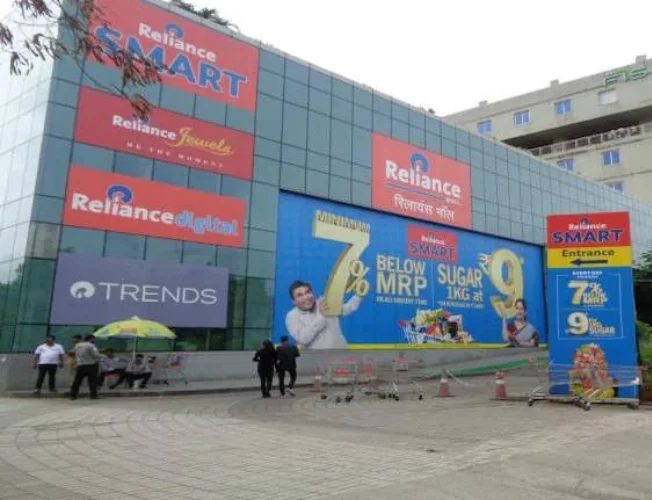Mumbai, the bustling financial capital of India, is witnessing a fierce battle for prime retail real estate between two of the country’s biggest business titans – the Tata Group and Reliance Industries. Both conglomerates are aggressively expanding their retail footprints, leading to a heated competition for the limited premium space available in the city.
Tata’s Growing Retail Ambitions
The Tata Group, already boasting a diverse retail portfolio encompassing brands like Zara, Starbucks, Westside, and Titan, currently occupies around 25 million square feet of retail space across India. However, their ambition doesn’t stop there. They are actively seeking to acquire new properties in Mumbai, particularly in high-end locations, to further their retail expansion plans.
Reliance’s Retail Dominance and Expansion Strategy
Reliance Industries, a major player in the Indian retail landscape, currently holds a much larger retail footprint at 73 million square feet, tripling that of the Tata Group. This dominance stems from their ownership of Reliance Retail, which operates popular brands like Reliance Fresh, Reliance Trends, and JioMart. Despite their existing presence, Reliance is also actively seeking to expand its premium retail portfolio in Mumbai.
Competition Heats Up in a Limited Market
The available premium retail space in Mumbai is scarce, making the competition between these two giants even fiercer. Both groups are willing to pay top dollar for prime locations in areas like Colaba, Bandra, and Nariman Point, offering high footfall and brand visibility. This intense competition is driving up property prices in these coveted areas.
Beyond the Numbers: Strategic Diversification and Brand Building
While both groups are driven by financial gains, there are deeper strategic reasons behind their aggressive expansion. The Tata Group aims to diversify its portfolio beyond its traditional industries like steel and automobiles, establishing a stronger foothold in the rapidly growing Indian retail sector. Similarly, Reliance seeks to solidify its retail dominance and build brand loyalty through premium offerings and flagship stores.
Impact on Consumers and the Retail Landscape
This increased competition between the Tatas and Reliance is ultimately beneficial for consumers, offering them a wider variety of brands, formats, and shopping experiences. Additionally, it encourages innovation and elevates the overall retail landscape in Mumbai, attracting more global brands and enhancing the city’s international appeal.
Challenges and Future Outlook
However, there are challenges associated with this rapid expansion. Finding suitable locations, managing operational costs, and attracting and retaining talent are key hurdles that both groups need to overcome. The future of this retail rivalry will depend on how effectively they navigate these challenges and adapt their strategies to the evolving consumer preferences and market dynamics.
Read more.. Marketing News, Advertising News, PR and Finance News, Digital News.





